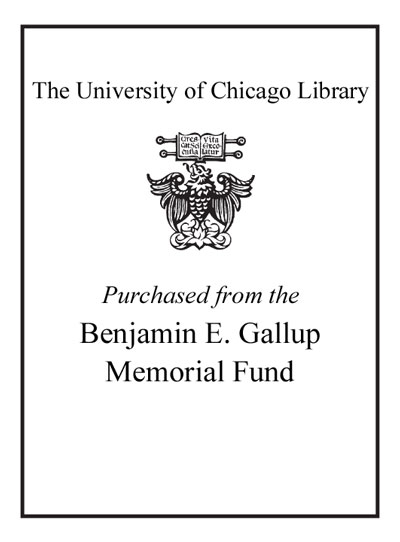Review by Booklist Review
In this fascinating biography of Jane Addams, founder of the Hull House settlement in Chicago and winner of the Nobel Peace Prize in 1931, Diliberto focuses on the early life of Addams and provides insight into her personality and the influence of her family and friends. Addams was an obscure, sickly small-town girl who converted her ideals of social justice and her desires to be "useful" into a movement. Using family documents not previously available to biographers, Diliberto reveals Addams' youthful "tensions between femininity and ambition" that were typical of the period. Diliberto examines Addams' possibly psychosomatic illnesses, most likely caused by depression brought on by family illnesses and death and the stifling restrictions on women. Addams balanced her sense of familial duty against a long-simmering resentment at her father's failure to support her desire for higher education and her career ambition. Diliberto also explores, in present-day fashion, Addams' close, romantic friendships with two women. --Vanessa Bush
From Booklist, Copyright (c) American Library Association. Used with permission.
Review by Publisher's Weekly Review
From this account of her first 39 years, it would appear that pioneering social reformer Jane Addams might have as easily become a chronic invalid as a winner of the Nobel Peace Prize, which she received in 1931. Diliberto, author of previous biographies of Hadley Hemingway and of debutante Brenda Frazer, situates Addams's dedication to the poor firmly within the context of late-Victorian virtuous womanhood. Drawing upon previously untapped personal papers, Diliberto reveals the enormous toll exacted on Addams by her attempt to reconcile the conflicting claims of her own ambitions and her duty, as she saw it, to her family. Only when she founded the Hull House Settlement to serve Chicago's inner-city immigrants, an enterprise that was both socially useful and under her own control, did she gain a measure of health. She was sustained as well by her deep emotional attachments to other women, especially Mary Rozet Smith, with whom Addams lived in what she called a "marriage" for more than 30 years. While acknowledging the implicit sexual content of Addams's friendships with women and documenting the passionate language of her correspondence with Smith, Diliberto is unable to determine if these feelings ever found overt sexual expression, though she is inclined to doubt it. Diliberto makes more of Addams's psychological difficulties than of the objective obstacles she overcame and does not quite account for her extraordinary success. Nevertheless, this accessible book holds revealing insights for both general readers and specialists. (July) (c) Copyright PWxyz, LLC. All rights reserved
(c) Copyright PWxyz, LLC. All rights reserved
Review by Library Journal Review
Jane Addams (1860-1935), winner of the Nobel Peace Prize in 1931, founded Hull House settlement in 1889 to offer services such as day care, language classes, vocational training, and recreational activities to immigrants in a working-class Chicago neighborhood. Hull HouseÄone of the first settlements of its kind in North AmericaÄalso provided idle and powerless but educated upper-class women like Addams with a welcome opportunity to engage in meaningful work. Personal correspondence that was unavailable to previous biographers informs Diliberto's analysis of Addams's formative years. Highlights include Addams's girlhood impressions of her father's friend and colleague, Abraham Lincoln; her visit to Toynbee Hall settlement house in London, a key inspiration for Hull House; and a meeting with Leo Tolstoy at his estate in Russia. Diliberto, a freelance writer, is the author of well-received biographies of Hadley Richardson Hemingway and Brenda Frazier. Recommended for all collections.ÄKim Baxter, New Jersey Inst. of Technology, Newark (c) Copyright 2010. Library Journals LLC, a wholly owned subsidiary of Media Source, Inc. No redistribution permitted.
(c) Copyright Library Journals LLC, a wholly owned subsidiary of Media Source, Inc. No redistribution permitted.
Review by Kirkus Book Review
A lively and thorough account of Jane Addams's early influences, hampered only by the aloofness of the subject herself. Using family documents unavailable to previous biographers, Diliberto (Hadley, 1992; Debutante: The Story of Brenda Frazier, 1987) reconstructs Addams's early years and traces the transformation of a depressed, emaciated invalid into an energetic, busy woman. Diliberto weaves her tale seamlessly, while expertly interspersing regional history, psychological and political theories, and historical characters throughout. Jane was born to a pious and industrious Illinois couple, but her early life was plagued by illness and tragedy. Diliberto reveals Addams's steadfast devotion to her family, whose claims on her threatened to tear her away from her larger calling. Founding Hull House settlement in 1889 freed Addams of purposelessness and depression, and turned her into a national and international star of social reform. As she became more independent, Addams turned to her friends for love and support, particularly to Ellen Starr, her partner in founding Hull House, and Mary Rozet Smith, her delivering love. Diliberto is a bit overzealous in downplaying the possibility of sexual relations between these devoted friends. She likens Jane and Ellen to newlyweds on their first night in Hull House yet insists they had separate bedrooms, where, she emphasizes, they dressed separately. Addams's sexuality remains somewhat of a mystery, in part because she destroyed most of Mary's letters to her. Addams, known for her emotional reserve, was enigmatic in many ways. We get a sense of her feistiness and dedication through her actions (becoming garbage inspector for her neighborhood), yet she rarely leaps off the page. Instead, Addams shines through as a consummate do-gooder: a successful speaker and fundraiser, a loyal sibling, a progressive theorist, an understated feminist, and an excessively self-sacrificing caregiver. A sympathetic biography of a woman who would have wanted above all to be remembered for being useful. (8 pages b&w photos, not seen)
Copyright (c) Kirkus Reviews, used with permission.
Review by Booklist Review
Review by Publisher's Weekly Review
Review by Library Journal Review
Review by Kirkus Book Review

